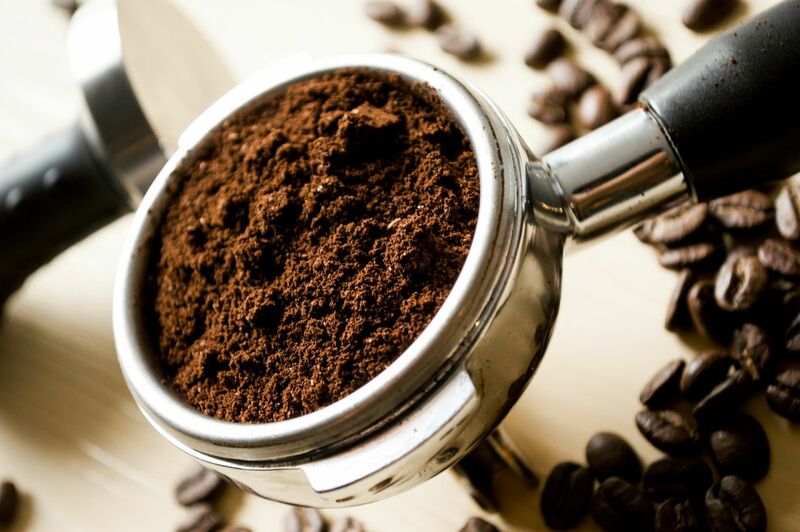
May arabica coffee (KCK23) on Thursday closed up +3.45 (+1.92%), and May ICE robusta coffee (RMK23) closed down -15 (-0.65%).
Coffee prices Thursday settled mixed, with arabica posting a 2-week high. Coffee prices have carryover support from Wednesday when the International Coffee Organization (ICO) reported global coffee exports from Oct-Feb fell -8.7% y/y to 48.66 mln bags.
A bearish factor for robusta coffee is a negative carryover from last Wednesday when Vietnam's General Statistics Office reported that Vietnam's Mar coffee exports rose +9.2% y/y to 230,000 MT. Vietnam is the world's largest producer of robusta beans.
The ICO projects the global 2022/23 coffee market deficit will widen to -7.3 mln bags from a -7.1 mln bag deficit s in 2021/22. The ICO also projects 2022/23 global coffee production to increase +1.7% y/y to 171.27 mln bags and 2022/23 global coffee consumption to increase +1.7% y/y to 178.53 mln bags.
Tighter ICE arabica stockpiles support prices after ICE monitored arabica coffee inventories Thursday fell to a 3-3/4 month low of 730,659 bags.
Robusta has support on global supply concerns after coffee trader Volcafe forecasted the global 2023/24 robusta coffee market would see a record deficit of 5.6 mln bags. In addition, the Association of Indonesian Coffee Exporters and Industries said that Indonesia, the world's third-largest robusta producer, will see its 2023 coffee production fall -20% y/y to 9.6 mln bags due to damage from excessive rainfall across its growing regions.
Reduced flooding concerns in Brazil's coffee fields are a negative factor for coffee prices. The drier conditions should allow farmers in Minas Gerais, Brazil's largest arabica growing region, back into coffee fields to apply fertilizers and pesticides. Somar Meteorologia reported Monday that Brazil's Minas Gerais region received 12.6 mm of rain in the week ended April 2, or 52% of the historical average. Minas Gerais accounts for about 30% of Brazil's arabica crop.
A rebound in current coffee supplies is bearish for prices after ICE robusta coffee inventories rose to a 3-1/2 month high at 7,712 lots on March 23. Also, the Green Coffee Association on March 15 reported that U.S. Feb green coffee inventories rose +5.9% y/y to 6.105 mln bags.
Arabica coffee has support after Rabobank cut its 2023 Brazil arabica production estimate last Monday to 42.7 million bags from a February estimate of 44 million bags, citing heavy rains in the south of Minas Gerais that caused diseases to spread.
Another bullish factor for arabica prices was the projection from the National Federation of Coffee Growers on March 3 that coffee output in Colombia, the world's second-largest producer of arabica coffee, will drop -4.8% y/y to 5 mln bags in the first half of 2023 as excessive rain and cloudy days hurt yields.
Smaller global coffee exports support prices. Guatemala, the second-largest coffee producer in Central America, reported its coffee exports fell -8% y/y in January to 172,439 bags. On March 13, the Colombia Coffee Growers Federation reported Colombia Feb coffee exports fell -6% y/y to 928,000 bags. Brazil's Feb green coffee exports dropped -35.8% y/y to 2.11 mln bags. By contrast, Honduran Mar coffee exports rose +14% y/y to 1.097 million bags. Honduras is Central America's biggest exporter of arabica beans.
The USDA, in its bi-annual report released on December 23, cut its global 2022/23 coffee production estimate by -1.3% to 172.8 mln bags from a June estimate of 175.0 mln bags. In addition, the USDA cut its 2022/23 global coffee ending stocks estimate by -1.7% to 34.1 mln bags from a June estimate of 34.7 mln bags. Meanwhile, the USDA's Foreign Agriculture Service (FAS) on November 22 cut its Brazil 2022/23 coffee production forecast by -2.6% to 62.6 mln bags from a prior estimate of 64.3 mln bags. This year was supposed to be the higher-yielding year of Brazil's biennial coffee crop, but coffee output this year was slashed by drought.
Arabica Prices Firm On Tighter Global Supplies
Coffee Prices Rally Sharply As Global Supplies Dwindle
On the date of publication, Rich Asplund did not have (either directly or indirectly) positions in any of the securities mentioned in this article. All information and data in this article is solely for informational purposes. For more information please view the Barchart Disclosure Policy here.






